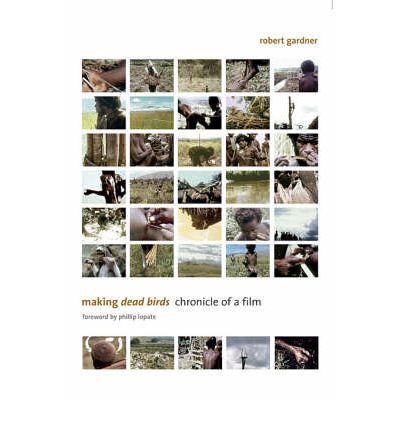Education
Harvard University.


(Robert Gardner s classic "Dead Birds" is one of the most ...)
Robert Gardner s classic "Dead Birds" is one of the most highly acclaimed and controversial documentary films ever made. This detailed and candid account of the process of making "Dead Birds," from the birth of the idea through filming in New Guinea to editing and releasing the finished film, is more than the chronicle of a single work. It is also a thoughtful examination of what it meant to record the moving and violent rituals of warrior-farmers in the New Guinea highlands and to present to the world a graphic story of their behavior as a window onto our own. Letters, journals, telegrams, newspaper clippings, and over 50 images are assembled to recreate a vivid chronology of events. "Making Dead Birds" not only addresses the art and practice of filmmaking, but also explores issues of representation and the discovery of meaning in human lives. Gardner led a remarkable cast of participants on the 1961 expedition. All brought back extraordinary bodies of work. Probably most influential of all was "Dead Birds," which marked a sea change in nonfiction filmmaking. This book takes the reader inside the creative process of making that landmark film and offers a revealing look into the heart and mind of one of the great filmmakers of our time.
http://www.amazon.com/gp/product/B00Q5G946Y/?tag=2022091-20
Harvard University.
Starting in 1950s, he is known for his work in the field of visual anthropology and films like Dead Birds, and Forest of Bliss. In 2011, a retrospective of his work was held at Film Forum, New New York He was a cousin of poet Robert Lowell.
This led to travels to Anatolia, Fayum and London working with Coptic textiles and restoring Byzantine art Next, he started teaching medieval art and history at the College of Puget Sound in Washington state.
Here, he took to writings of anthropologist Ruth Benedict and he ended up post doing Master of Arts in anthropology from Harvard. lieutenant was during his graduation period that he took part in an expedition on Kalahari Desert Bushmen, for which he took photographs, films and carried out elementary research work.
Thereafter he founded The Film Study Center, a production and research unit at the Peabody Museum at Harvard in 1957. Here it made documentary films till he left the centre in 1997.
The Peabody Museum of Archaeology and Ethnology now gives the Harvard University"s "Robert Gardner Fellowship in Photography" worth $US50,000
Tim Asch
John Marshall.
(Robert Gardner s classic "Dead Birds" is one of the most ...)
